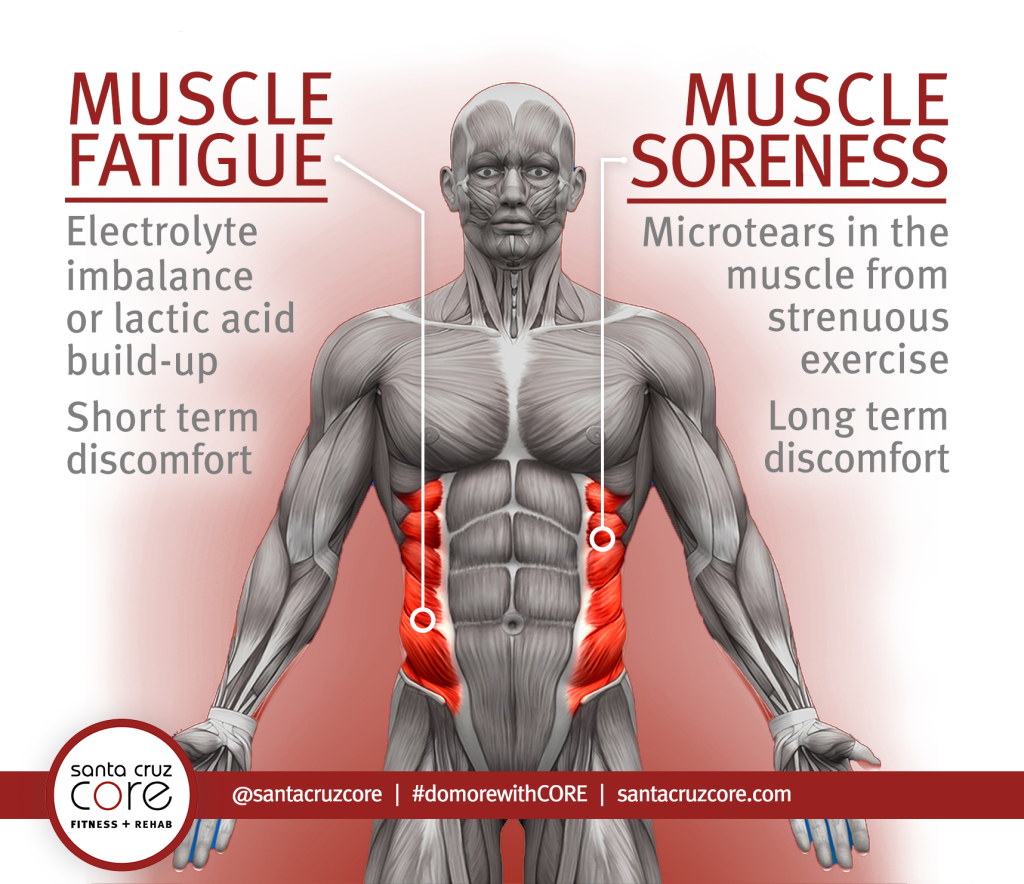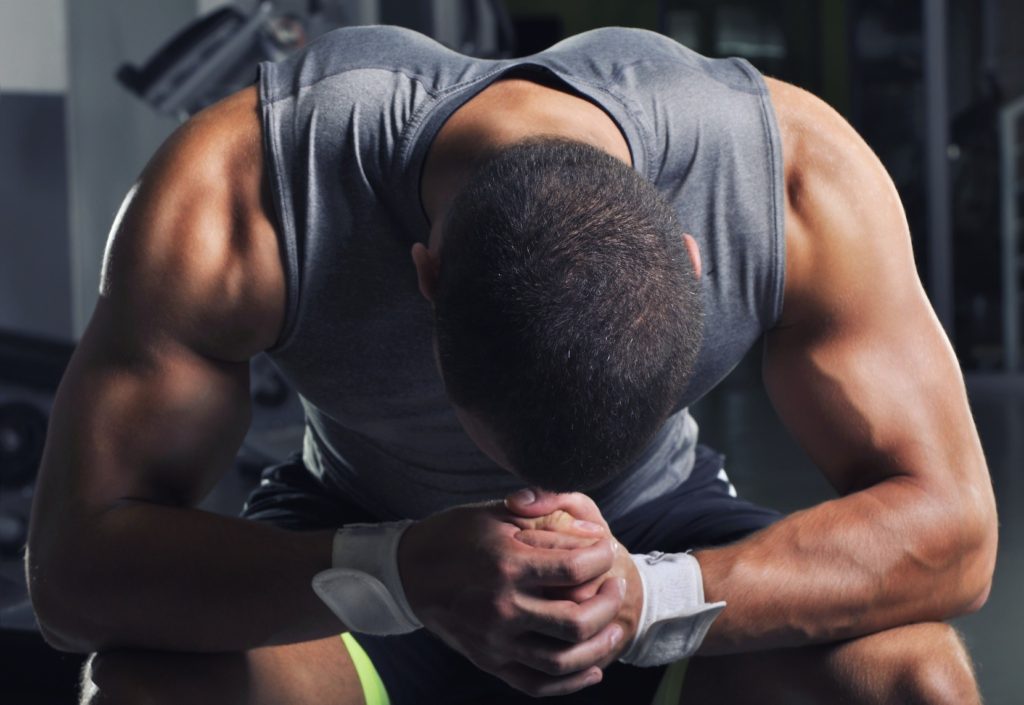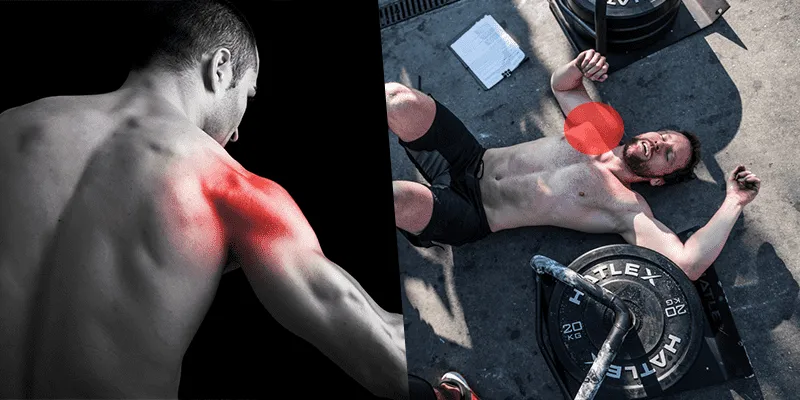How to Avoid Fatigue from Working Out
- Eat a well-balanced diet.
- Time your food intake to your exercise.
- Drink more water.
- Improve your aerobic capacity.
- Use correct form.
- Rest and recover.
How long should I rest for muscle fatigue?
The volume, intensity, and duration of your workout all play a role in determining how taxing it is on your body. After a relatively light workout, your muscles may be able to recover in 24 hours, whereas a more challenging workout might take two to three days. Very intense workouts might take even longer.
How long does post workout fatigue last?
While normal bouts of tiredness may occur occasionally or last for short periods and DOMS should subside after a few days, workout fatigue and aches become an issue when they hang around for much longer or start to impact your health and day-to-day life.
How can I speed up muscle fatigue recovery?
- How to speed exercise recovery. Before we dive into the deets, here's a quick list of the 18 best ways to speed workout recovery:
- Rest up. Get more sleep.
- Chill out. Listen to music.
- Eat or drink more protein. Eat protein in the morning.
- Stay hydrated. Drink chocolate milk.
- Give your muscles some TLC. Rest your muscles.
- Tl;dr.
Can I still workout with muscle fatigue?
Exercising when you're running on empty also increases your risk of injury. So if you're exhausted, the best thing you can do for your body is to get a good night of rest and get back in the gym the next day.
Is it normal to be tired next day after workout?
Feeling ill or weak after exercising is not normal. You may be feeling exhausted after a workout and even the next day, but you should recover quickly. If you are not recovering or are more tired than normal, this could be a sign that your workout was too intense and demanding on your body.





“CNS Fatigue” is generally misunderstood by S&C. Residual CNS Fatigue is caused more by muscle damage from a previous workout than anything else. Additionally, long duration exercise causes more CNS Fatigue acutely than high output work. https://t.co/gAP4N5bRpf
— JD Mehlhorn (@JDMehlhorn) April 13, 2022
How long does gym fatigue last?
The time you suffer from muscle fatigue will depend on how far you've pushed yourself. With that said, though, you should be fully recovered within three to five days. If muscle fatigue lasts longer than that, then chances are you've pushed yourself further than you should and consider that for any future workouts.
Frequently Asked Questions
Should I nap after a workout?
If your goal is to improve your performance during the workout, napping before exercise may be beneficial. On the other hand, if your goal is to promote recovery and reduce soreness, napping after exercise may be more effective.
Why do we feel exhausted after exercising?
While exercising, our muscles work too fast and face lack of oxygen. Thus, they carry out anaerobic respiration that produces lactic acid along with energy. Accumulation of lactic acid is responsible for the fatigue we feel.
How long does it take your body to get used to working out?
For beginners, it can take a few weeks for the body to adapt to regular exercise. During this time, you may experience muscle soreness and fatigue as your body adjusts to the new physical demands.
How do you recover from cramps after exercise?
Stretch the cramped muscle and gently rub it. For a calf cramp, keep the leg straight while pulling the top of your foot on the side that's cramped toward your face. Also try standing with your weight on your cramped leg and pressing down firmly.
How do you relieve tired and achy muscles after intense exercise?
Sore muscles after exercise
- Apply ice packs.
- Try massage.
- Practice light stretching.
- Take painkillers or anti-inflammatory medication if necessary.
How do you recover from muscle fatigue after exercise?
Lifestyle
- Sleep more. Sleep gives your muscles time to recover from exercise.
- Massage. Many athletes incorporate massage in their training to reduce muscle soreness.
- Compression garments. Wearing compression garments has become common among athletes over the past several decades.
- Contrast water therapy.
- Cryotherapy.
How can I speed up my muscle recovery?
Stress can cause your recovery time to be longer. Quality sleep, passive and active recovery, massage, foam rolling, compression garments, plus hot and cold therapies are all good for muscle recovery. Macro eating and good hydration will give you the necessary nutrients for a faster recovery.
How do I not get fatigued when working out?
Drink enough both during the day and during your workout to prevent sluggishness. If you're not adequately hydrated during the day, especially right before your normal exercise routine, it's normal to feel tired and sluggish. Signs of dehydration include fatigue, dark colored urine, thirst, and headaches.
Why do I feel tired after a full body workout?
In general, feeling sleepy after exercise isn't a cause for concern. It's normal to feel tired after physically exerting yourself. This is more likely after intense workouts. For example, you can expect your energy levels to dip after a long run or high-intensity interval training.
FAQ
- Why is full body workout so tiring?
- Working out without breaks or working out beyond your current fitness level can strain your heart and circulation system, leaving you exhausted. Take a five-minute break to lower the heart rate and rehydrate by taking some water. Rehydration will reduce blood thickness, resulting in improved circulation.
- Can you build muscle without fatigue?
- Conclusions: Fatigue and metabolite accumulation do not appear to be critical stimuli for strength gain, and resistance training can be effective without the severe discomfort and acute physical effort associated with fatiguing contractions.
- How can I increase my energy for working out?
- Next time you're planning to exercise, try these five motivators to get energized and break the cycle!
- Eat to Move. About an hour before your workout, eat a snack or small meal made up of complex carbs, healthy fats, and protein.
- Drink More Water.
- Buy a New Outfit.
- Get Limber.
- Make a Workout Playlist.
- How do I overcome gym fatigue?
- Cool down. If you're doing weight training or any type of resistance training, it may be helpful to do an aerobic cool down afterwards such as a light jog or bike ride. If you're doing more endurance training such as long runs or a long bike rides, a shorter ride or shorter run might be beneficial the next day.
- Why do I get fatigued so fast at the gym?
- During exercise the contracting muscles generate force or power and heat. So physical exercise is in fact a form of mechanical energy. This generated energy will deplete the energy stocks within the body. During exercise, metabolites and heat are generated, which affect the steady state of the internal environment.
- Why do I always feel so tired after the gym?
- It's common to get tired after a long or tough workout. In general, this occurs because your muscles run out of energy. Your central nervous system also loses its ability to keep moving your muscles. This causes muscle fatigue, making you feel tired.
- How do you manage fatigue when working out?
- Exercise when experiencing fatigue We promise you will feel better! On days when your fatigue makes the couch particularly inviting, try exercising for 10 minutes. If you feel worse after 10 minutes of movement, stop and rest for the remainder of that day. Try to exercise again the next day.
- How long does muscle weakness last after workout?
- With that said, though, you should be fully recovered within three to five days. If muscle fatigue lasts longer than that, then chances are you've pushed yourself further than you should and consider that for any future workouts.
- How long should soreness last after a workout?
- Is there even such a thing? "Typically, muscle soreness peaks around day three and starts diminishing afterwards. If your soreness persists beyond three days, it means you overdid it — you pushed your muscles a little too hard. But, prolonged muscle soreness can also be a sign of an injury," warns Murray.
How long does muscle fatigue last after workout
| What happens if I workout with sore muscles? | It is generally safe to work out when sore. However, overtraining can lead to muscle damage or injury. Generally, soreness due to exercising is not a cause for concern, and people can often continue doing physical activity. |
| Can sore muscles make you feel sick? | DOMS is muscle pain that sets in after you've engaged in physical activity. It's often called "muscle fever" because, depending on the severity, your muscles might feel weak and sickly in addition to sore. |
| How do you get rid of weakness after working out? | How to Avoid Fatigue from Working Out
|
| Does being sore from working out make you tired? | Having a hard time moving muscles after a long gym session? This is known as muscle fatigue and can result from any kind of strenuous physical activity. Muscle fatigue can also take the form of soreness, weakness, or lack of energy. |
| How do you deal with post workout fatigue? | Rest and recover. Allow adequate rest between workout sessions and strength repetitions. Make sure the rest break is enough to catch your breath between exercise sets. Listen to your body; fatigue is a sign that recovery has not taken place yet. |
| Is it normal to feel sleepy after a workout? | Physical activity causes the muscles to deplete the supply of glycogen, resulting in muscle fatigue and the potential to evolve into sleepiness. “The byproducts of energy utilization, like lactic acid, also contribute to muscle fatigue,” he adds. |
| Why am I so tired with sore muscles? | You can develop muscle fatigue after exercise, but you can also develop it due to some medications or health conditions like anemia, dehydration, depression, and hepatitis C, among others. |
| Why am I so tired the morning after working out? | You may be feeling exhausted after a workout and even the next day, but you should recover quickly. If you are not recovering or are more tired than normal, this could be a sign that your workout was too intense and demanding on your body. This may be a sign of exercise fatigue syndrome. |
- How do I stop being tired after a morning workout?
- How to Avoid Fatigue from Working Out
- Eat a well-balanced diet.
- Time your food intake to your exercise.
- Drink more water.
- Improve your aerobic capacity.
- Use correct form.
- Rest and recover.
- How to Avoid Fatigue from Working Out
- Is it good to sleep after exercise in the morning?
- If you work out in the mornings, we recommend taking a 20-30 minute nap after your workout. Naps longer than this could cause grogginess and disrupt your nighttime sleep.
- What are symptoms of overtraining?
- Symptoms and warning signs of overtraining
- Unusual muscle soreness after a workout, which persists with continued training.
- Inability to train or compete at a previously manageable level.
- "Heavy" leg muscles, even at lower exercise intensities.
- Delays in recovery from training.
- Performance plateaus or declines.
- Symptoms and warning signs of overtraining
- Why am I so tired days after working out?
- Extreme fatigue or exhaustion after workouts may be caused by intense physical exertion or an underlying medical condition. If this becomes persistent such that you are always fatigued, it could signify a serious underlying condition that requires immediate medical attention.
- How long should exercise fatigue last?
- The time you suffer from muscle fatigue will depend on how far you've pushed yourself. With that said, though, you should be fully recovered within three to five days. If muscle fatigue lasts longer than that, then chances are you've pushed yourself further than you should and consider that for any future workouts.
- How do I stop fatigue after exercise?
- How to Avoid Fatigue from Working Out
- Eat a well-balanced diet.
- Time your food intake to your exercise.
- Drink more water.
- Improve your aerobic capacity.
- Use correct form.
- Rest and recover.
- How to Avoid Fatigue from Working Out
- Why am I so tired after working over the days?
- You might be physically overrun at your job, or pushing yourself too hard exercising on top of work. Excessive physical exertion can leave you with sore or injured muscles, and drained of the energy you need for tasks and activities at the end of the day.
- What are the signs of overtraining?
- Symptoms and warning signs of overtraining
- Unusual muscle soreness after a workout, which persists with continued training.
- Inability to train or compete at a previously manageable level.
- "Heavy" leg muscles, even at lower exercise intensities.
- Delays in recovery from training.
- Performance plateaus or declines.
- Symptoms and warning signs of overtraining
